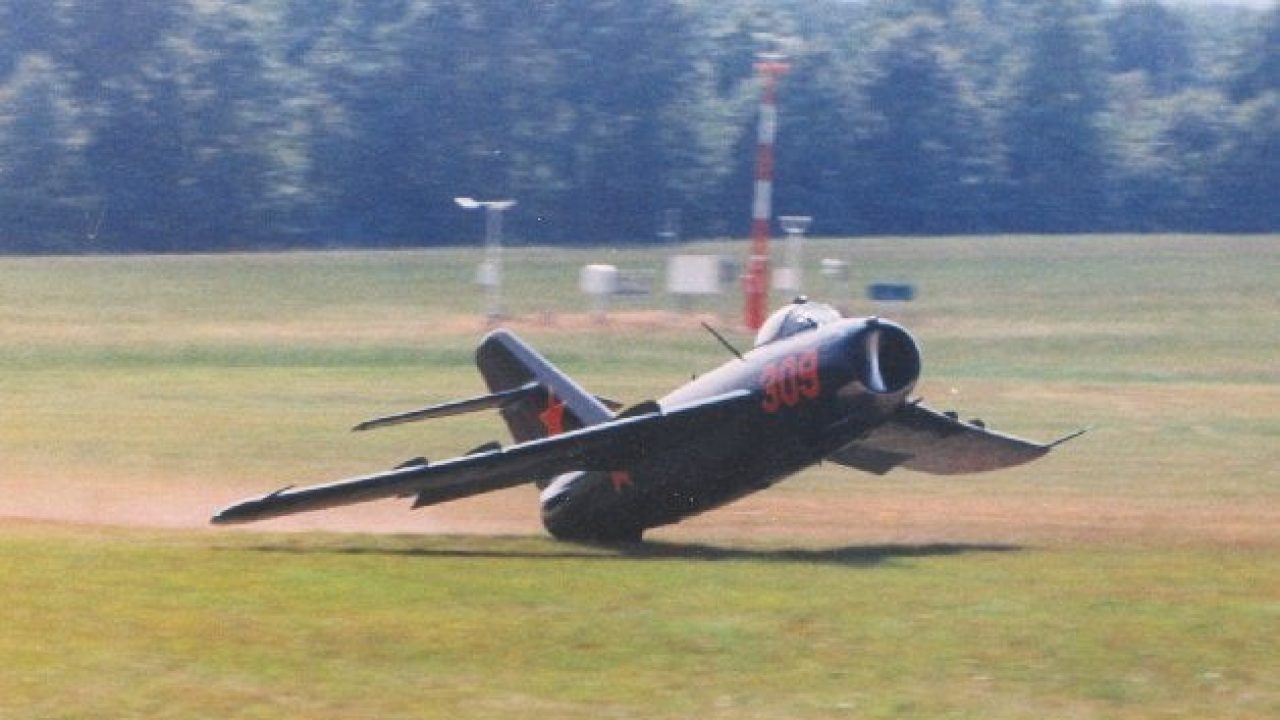MiG-17 Tail Strike after completing a Loop
Taken during a 1990 airshow in Harrison, Arkansas, the incredible photo in this post features a MiG-17 fighter aircraft having a tail strike after his pilot completed a loop and misjudged the pull-out.
According to an interesting post appeared on RC Universe forum, ‘the tail strike occurred during a 1990 airshow in Harrison, Arkansas. Kelly, who was a technician for the FAA and somewhat of a camera buff, was tracking this guy flying a MiG-17 with his camera.
‘The pilot had just completed a loop and misjudged his pull-out. Everyone considering themselves as potential victims, took-off running in all directions. But Kelly had a non-threatening position with strong motivation to take the picture. So just as the MiG scraped the ground, Kelly captured this rare image.
‘Had it been circulated at the time, this clear, once in a lifetime photograph might have earned an award.
‘Oh, by the way, the guy made a wide circle, lowered his landing gear, touched down then taxied in showing very minor damage.’
The MiG-17
Made famous by the Vietnam War, the MiG-17F was the primary enemy aircraft engaged in the skies over Vietnam by US aircraft, such as the A-4, A-7, F-8, B-52, F-100, F-105 and its primary nemesis, the F-4 Phantom II. During that war and up until the F-16 entered service, it was the tightest-turning fighter in the world. When production started in the 1950s, its VK-1F engine made it one of the first production jet fighters in the world with an afterburner.
The MiG-17 could carry bombs, rockets, or extra fuel tanks under its wings. In its lower nose it carried some of the largest guns ever used for air-to-air combat—two 23mm canons and one 37mm canon. The MiG-17 can maintain 8g turns (8g = 8 times the force of gravity on the pilot’s body), attain a maximum speed of 715 mph (Mach 1.04) and can climb to 30,000 feet in only 3 minutes, with an initial rate of climb better than 14,000 feet per minute.

Photo by Kelly A. Angell FAA

